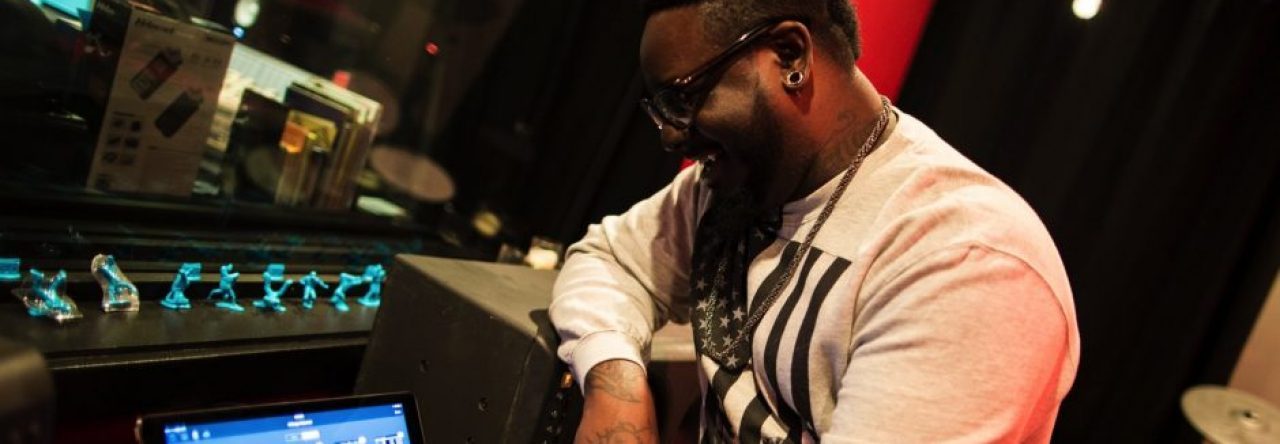T-Pain’s musical success can be directly attributed to the success auto-tune brought him. This is proven in the significant sales jump from 2005’s Rappa Ternt Sanga to 2007’s Epiphany, when he first began using auto-tune. After his initial use of auto-tune, his popularity began to explode with songs such as “Buy U A Drank”, “I’m Sprung”, “I’m ‘n Luv”, and “Bartender”, all using auto-tune [1]. The most interesting part about this initial success with these songs is that they are all quite different. Some have upbeat rhythms clearly geared toward club culture, while others are not. Additionally, T-Pain’s 2005 album sounded more R&B and soul rather than hip hop. His incorporation of significant hip hop influences such as more use of the DJ board helped dramatically in sales. Despite these differences, autotune allows T-Pain’s timbre to match to the harmony and notes and to flow smoother than traditional hip hop songs. Many of his early songs featured famous artists such as Wiz Khalifa, Jamie Foxx, Chris Brown, and Akon thus furthering the increasing popularity of autotune. He still continues to feature several famous artists including Ty Dolla $ign, Ne-Yo, and Lil Wayne.
Auto-tune allowed T-Pain to surpass Rappa Ternt Sanga‘s success. Other than Epiphany appearing as number one on the US Billboard 200, Epiphany sold 819,000 copies in a little over year while Rappa Ternt Sanga only sold 500,000 and was only featured as high as 33 on the US Billboard 200.
Along with his explosion into fame cerca 2007, T-Pain’s most famous feature in a song was released in 2008 with Flo Rida in “Low”. “Low”, “Kiss Kiss” by Chris Brown in 2007, and “Blame It” by Jamie Foxx in 2009 all peaked to at least the first or second rank in the Hot 100 chart. Given this type of success, it is no surprise that he won two Grammy Awards in 2008 and 2010 and was nominated for 10 others. Between 2007 and 2008, T-Pain won 6 other music related awards including those in the People’s Choice Awards, Teen Choice Awards, Ozone Music Awards, and Vibe Awards. T-Pain’s success was most significant when he first released numerous tracks that incorporated a creative auto-tune twist. This creativity caught the eye of audiences all over the country and is predominantly credited to his successful and entertaining use of auto-tune.
[1] Kramer, Kyle. “The T-Pain Effect: How Auto-Tune Ruined Music… And Saved Hip-Hop.” Complex. October 20, 2016. Accessed February 20, 2018. http://www.complex.com/music/2014/04/the-t-pain-efffect-how-auto-tune-ruined-music-and-saved-hip-hop.
